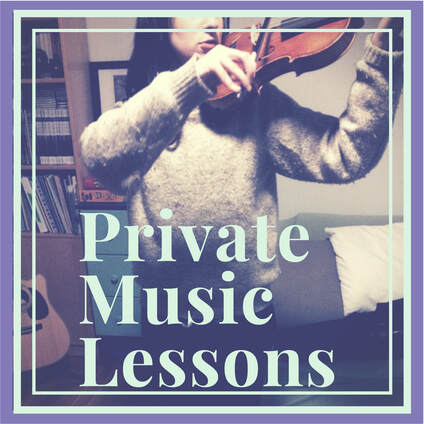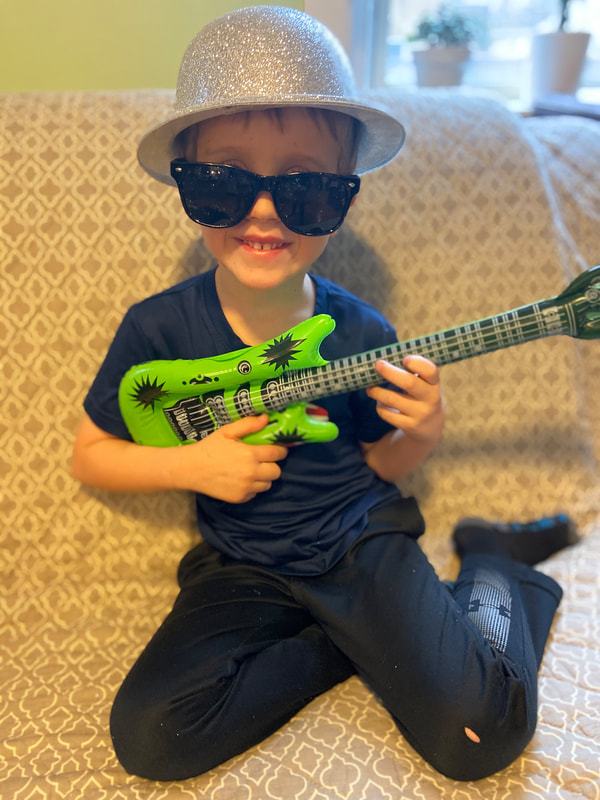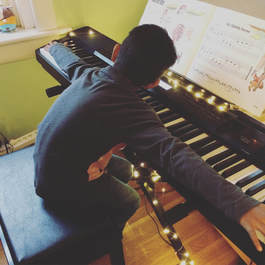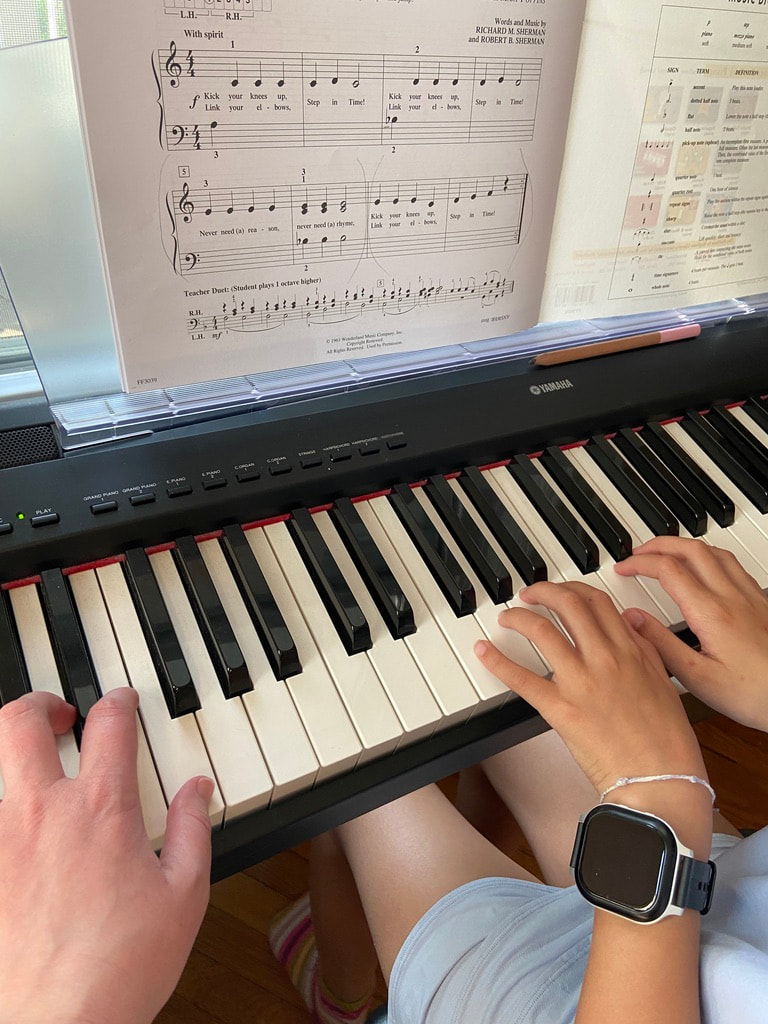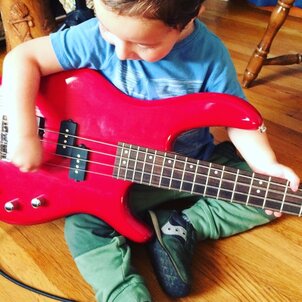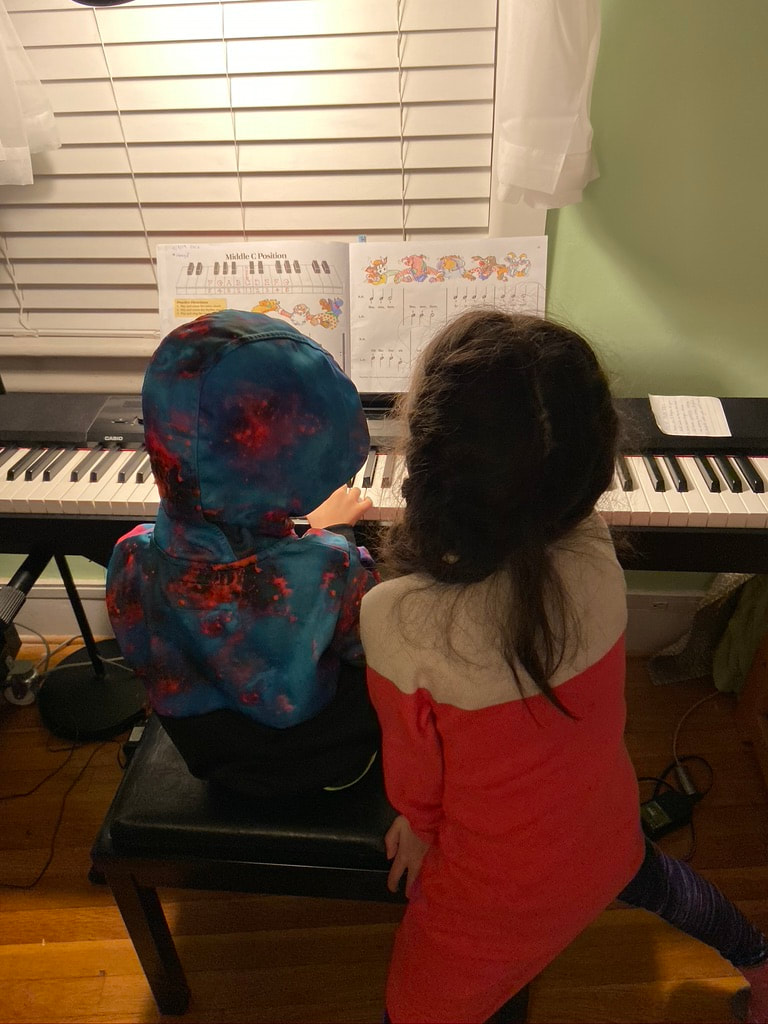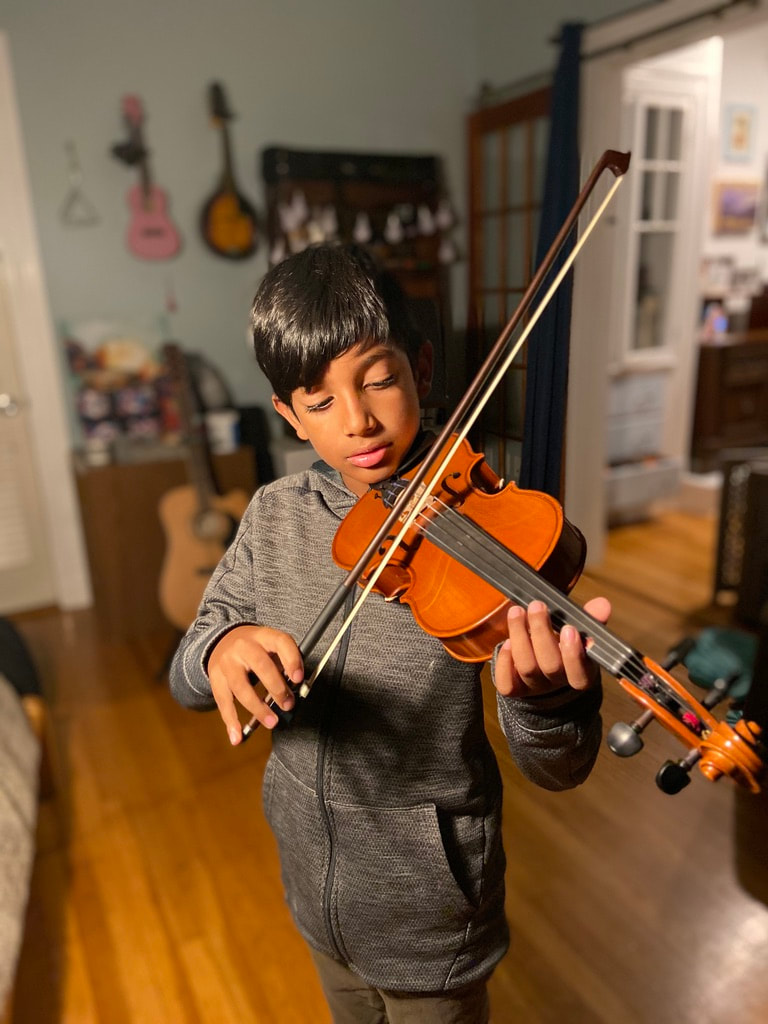|
StrongwaterStudios Private Lesson Rates
Single Lessons $75 / 45-50 minute lesson, in person at your home or St2 Studio (Wakefield) $70 / 45-50 minute virtual lesson Bulk-Buy Option Save $30 if you book 5 lessons at a time (must be used within 2 months) $345 for 5 lessons, in person $320 for 5 lessons, virtual Full Semester Special Save $100 Fall 2023, September 12th - December 11th $950 for full semester, in person $880 for full semester, virtual No reimbursements or credits provided for missed or cancelled lessons by students or their families. Makeups will be granted only if there is teacher availability. If needed, additional makeups will be permitted December 18 - 31. If your teacher needs to miss or cancel a lesson, makeups will be provided or your lesson will be credited. Payments accepted by check, venmo or square. Cash discounts available. Scholarships and Discounts available. StrongwaterStudios believes strongly that music should be available to all people, regardless of cost. |
I cannot recommend Peri highly enough. My youngest is already singing complete songs, and absolutely adores the guitar. She regularly teaches my older child about chords, notes, tempos, and different types of music and instruments. She has tons of experience with kids of all ages, is highly organized, and able to handle almost any situation. She is a very bright and resourceful young woman." Jessica, Cambridge Mom
|
About our Music LessonsWelcome to Strongwater Studios, where our mission is to equip child and adult students with the skills to creatively engage in music making with joy and intention. We distance ourselves from traditional, rigid approaches that prioritize a "perfect performance" above all else. While we provide comprehensive instruction in instrument/voice skills, ear training and essential techniques, we also infuse the learning process with opportunities for creativity, self-expression, and fun! For us, the process of working towards our goals is just as important as the final presentation. Each student's experience at our studio is unique, tailored to their skills, personality and passions. Some dive into reading and writing music notation on the grand staff to perform classical compositions, which others embrace chord structure and progressions for strumming and singing along to beloved Taylor Swift tunes. Some follow established curricula, while others DIY personal assignments in a blank notebook. Our lessons embrace songwriting, composition and improvisation. We love music theory, and teaching how the elements of music interact and combine to create fabulous or captivating sounds. At Strongwater Studios, we're not solely mastering an instrument or honing vocal skills - we're learning how harmony impacts the feel of a song, how one slight pitch alteration can have a drastic impact. We're learning how to feel confident and comfortable in our bodies while moving our fingers or voices in strange new ways. We're learning how to articulate a clear tone, how organize sounds into structure, how to perceive different timbres of instruments, how to build tension with chromatic tones and how to improvise a melody so that it lands ... just... right. While a primary focus may be on mastering a single instrument, we also strive to nurture your broader music theory skills and cultivate an appreciation for music. These abilities will enrich your enjoyment of musical activities such as listening to music, attending concerts, jamming with friends, singing by the campfire, dancing at weddings, and exploring the myriad of wonderful ways to engage in music. |
A Musical Instrument for Every Personality!
Just like human people, every musical instrument has it's own character, personality and role. Some people might have an instinctual feeling about or a calling towards playing a certain instrument - if that's you, great! Go for it! Other people might know they want to learn music but aren't sure where to start. This quick guide should shed some insight into picking an instrument. Please note that the following theories are based on my personal observations and opinion and should not be considered factual.
Violin: A popular choice for beginner musicians, the violin is often the star of the show. In orchestra and chamber music, the violins often have the "fun part" - the singable, catchy or dramatic melodies. In an orchestra, there are two groups of violins, with around 10-15 violins in each group - that's up to 30 violins in a single orchestra! The violin has a bit of a learner's curve, as it is difficult to pronounce a clear and beautiful sound at first. Position and technique are very important when playing the violin, which might be difficult for children or impatient adults. However - with lots of practice- the violin is an incredibly soulful and beautiful instrument and can express an enormous range of emotions, from fervor and fear to sweeping romance to tragic devastation. As it is a popular choice, the violin may require a bit of a competitive edge to succeed as a performer. The treble clef is used for violin music. Popular genres for the violin include classical, chamber, orchestral, folk and bluegrass. Recommended for kinesthetic or auditory learners.
Viola: Similar to the violin, but a little bigger and lower in pitch. Beautiful, soulful and human-like voice qualities. The viola is a unique instrument, and in orchestral and chamber music is often responsible for supportive and harmonic parts. (I was always intrigued by how the viola line really lets you see into the composer's mind!)There are 6-12 violas in an orchestra. The violins may have the "fun part", but the viola part is way more interesting! Viola players have a special bond between them because they are they are often the butt of many jokes. Because being a viola player is pretty rare, violists get very excited when they run into each other in the wild, often high-fiveing immediately. According to some experts I read about on the internet, the viola is recommended for more introverted or non-competitive types. The alto clef is most frequently used in viola clef, and most musicians don't know how to read alto clef, so you get to feel impressive. Fun fact: Jimi Hendrix played the viola! For more information about the viola, check out this article. Recommended for kinesthetic or auditory learners who are too cool for the violin.
Piano: The piano is the ideal beginner's instrument, as it lays everything out right in front of you - like having a full orchestra at your fingertips! It introduces the learner to many diverse elements of music such as rhythm, melody and harmony. The piano is an excellent introduction to reading music and understanding music theory, and makes for an excellent "gateway instrument" to other instruments and musical styles. Starting on the piano provides a solid musical foundation. Played sitting, doesn't cause as much physical strain as other instruments. An extremely diverse and versatile instrument. Downsides are its large size and portability issues. Recommended for visual or read-write learners or students who want an encompassing musical introduction.
Ukulele: A cute, joyful and pleasant instrument. Easy to learn, great for little fingers. Introduces student to chords and harmony. Great for self-accompaniment while singing. Unless you are as intensely dedicated to the ukulele as Jake Shimabukuro, it is not the most versatile instrument. Great as a first step before learning guitar. Bonus points for being light, cheap and extremely portable! Recommended for children or adults who want to take it easy.
Guitar: An extremely popular instrument, very accessible and versatile. StrongwaterStudios focuses on a chord-based and harmonic approach to playing guitar, so you can sing and play at the same time. While not as expressive as a melodic instrument, the guitar can provide accompaniment in nearly any musical situation. Cheaper and more portable than a piano! Wide range of instruments available with many options; electric or acoustic, different colors, different styles. The guitar serves many roles, with it you can be a leading frontman or part of the background rhythm section. Popular genres for the guitar include rock, blues, pop, country, folk, americana, bluegrass, gospel, motown, funk, flamenco, jazz, ragtime, punk, metal, and so on! Recommended for all learning types, and people who like singing around a campfire.
This is only the beginning, there are so many other musical instruments! The string family alone has the cello, bass, mandolin, banjo, sitar and harp. We haven't even gotten to brass, wind and percussion instruments! At this time, StrongwaterStudios does not offer private lessons for these instruments.
Violin: A popular choice for beginner musicians, the violin is often the star of the show. In orchestra and chamber music, the violins often have the "fun part" - the singable, catchy or dramatic melodies. In an orchestra, there are two groups of violins, with around 10-15 violins in each group - that's up to 30 violins in a single orchestra! The violin has a bit of a learner's curve, as it is difficult to pronounce a clear and beautiful sound at first. Position and technique are very important when playing the violin, which might be difficult for children or impatient adults. However - with lots of practice- the violin is an incredibly soulful and beautiful instrument and can express an enormous range of emotions, from fervor and fear to sweeping romance to tragic devastation. As it is a popular choice, the violin may require a bit of a competitive edge to succeed as a performer. The treble clef is used for violin music. Popular genres for the violin include classical, chamber, orchestral, folk and bluegrass. Recommended for kinesthetic or auditory learners.
Viola: Similar to the violin, but a little bigger and lower in pitch. Beautiful, soulful and human-like voice qualities. The viola is a unique instrument, and in orchestral and chamber music is often responsible for supportive and harmonic parts. (I was always intrigued by how the viola line really lets you see into the composer's mind!)There are 6-12 violas in an orchestra. The violins may have the "fun part", but the viola part is way more interesting! Viola players have a special bond between them because they are they are often the butt of many jokes. Because being a viola player is pretty rare, violists get very excited when they run into each other in the wild, often high-fiveing immediately. According to some experts I read about on the internet, the viola is recommended for more introverted or non-competitive types. The alto clef is most frequently used in viola clef, and most musicians don't know how to read alto clef, so you get to feel impressive. Fun fact: Jimi Hendrix played the viola! For more information about the viola, check out this article. Recommended for kinesthetic or auditory learners who are too cool for the violin.
Piano: The piano is the ideal beginner's instrument, as it lays everything out right in front of you - like having a full orchestra at your fingertips! It introduces the learner to many diverse elements of music such as rhythm, melody and harmony. The piano is an excellent introduction to reading music and understanding music theory, and makes for an excellent "gateway instrument" to other instruments and musical styles. Starting on the piano provides a solid musical foundation. Played sitting, doesn't cause as much physical strain as other instruments. An extremely diverse and versatile instrument. Downsides are its large size and portability issues. Recommended for visual or read-write learners or students who want an encompassing musical introduction.
Ukulele: A cute, joyful and pleasant instrument. Easy to learn, great for little fingers. Introduces student to chords and harmony. Great for self-accompaniment while singing. Unless you are as intensely dedicated to the ukulele as Jake Shimabukuro, it is not the most versatile instrument. Great as a first step before learning guitar. Bonus points for being light, cheap and extremely portable! Recommended for children or adults who want to take it easy.
Guitar: An extremely popular instrument, very accessible and versatile. StrongwaterStudios focuses on a chord-based and harmonic approach to playing guitar, so you can sing and play at the same time. While not as expressive as a melodic instrument, the guitar can provide accompaniment in nearly any musical situation. Cheaper and more portable than a piano! Wide range of instruments available with many options; electric or acoustic, different colors, different styles. The guitar serves many roles, with it you can be a leading frontman or part of the background rhythm section. Popular genres for the guitar include rock, blues, pop, country, folk, americana, bluegrass, gospel, motown, funk, flamenco, jazz, ragtime, punk, metal, and so on! Recommended for all learning types, and people who like singing around a campfire.
This is only the beginning, there are so many other musical instruments! The string family alone has the cello, bass, mandolin, banjo, sitar and harp. We haven't even gotten to brass, wind and percussion instruments! At this time, StrongwaterStudios does not offer private lessons for these instruments.
